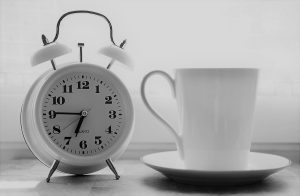If you lie in bed struggling to fall asleep, the 15-minute sleep rule might help break the cycle. It seems counterintuitive, but when you can’t fall asleep, sleep experts suggest that you get out of bed and occupy yourself with a calming activity for approximately 15 minutes.
This is the advice published in a recent guide by the University of Oxford, Nuffield Department of Clinical Neurosciences, and the Sleep and Circadian Neuroscience Institute. Also called the ‘quarter of an hour sleep rule’, the 15-minute rule can help reset your restless brain by starting the bedtime routine all over again.
What is the 15-minute rule?
According to the guide, ‘If you have difficulties sleeping you’ve probably noticed that you spend lots of time in bed awake. This means that bed might become connected with being awake, frustrated, or anxious about sleep.’
It is already well-documented that anxiety can have a negative impact our slumber.
The guide suggests that the best thing to do in this situation is to ‘get out of bed’.
It reads: ‘If you notice that you aren’t asleep within around 15 minutes of going to bed, try getting out of bed, go to another room, go through your wind down routine until you are feeling sleepy-tired and ready to return to bed for sleep.’
This is basically the same as starting your bedtime routine all over again. A key part of the rule is to not watch the clock as this will stop you from properly unwinding. Instead, you should estimate when 15 minutes have passed.
It is also recommended that you don’t get on your phone or watch TV. Instead, try to engage in a more peaceful activity such as reading, meditation, or yoga.
How to know if your mattress is impacting sleep quality
There are many factors that impact a good night’s sleep, but a good mattress makes a big difference in a restorative night’s sleep. No bedtime routine can outsmart an uncomfortable mattress. Below are our top seven signs you need a new mattress:
- Your mattress is more than seven years old. The Sleep Foundation recommends replacing your mattress every six to 10 years. This is a general guideline – most Sealy mattresses easily last longer than 10 years. Keep reading the tips below to help determine if you need a new mattress. However, it’s also important to note that Sealy is dedicated to sleep research, so if your bed is almost a decade old, there’s a good chance that you could be missing our on the latest sleep technology used in our latest range of mattresses.
- If you wake up feeling tired with aches and pains, it could mean your mattresses is no longer supporting your body the way it should.
- The bed is making more noise than usual – the springs are squeaking or the bed’s foundation is creaking.
- There are visible signs of wear and tear, like a spring sticking out of the mattress.
- There is a noticeable sag in the middle of the bed. We call it ‘taco bed’, and it causes you to roll into the middle of the bed. This might not be a problem if you sleep alone, but could be irritating if you sleep with a partner.
- Your allergies are worse than normal. It’s gross but true – you shed skin cells during the night and dust mites feed on them. Dust mites cause allergies. You should protect your mattress with a mattress protector and also clean it at least once a year. If your bed is really old though, it might be time to get a new bed.
- Your life circumstances have changed. Maybe you share a bed with a partner now, maybe your kids sleep in the bed with you, maybe you’ve gained weight, or you have body ailments you never had before. A lot can happen in 10 years, make sure your mattress changes with you.
Another two-minute activity that could drastically improve your sleep
We’ve timed it – it takes less than two minutes to complete the questions on the Sealy Mattress Selector tool. If you think your mattress might be hindering your sleep, answer a few quick questions regarding your sleep and lifestyle habits. Your answers will help us understand what’s most important to you when it comes to getting a good night’s sleep, and after analysing your answers, we provide a recommendation for a mattress based on your unique sleep profile. Click here to get started.




